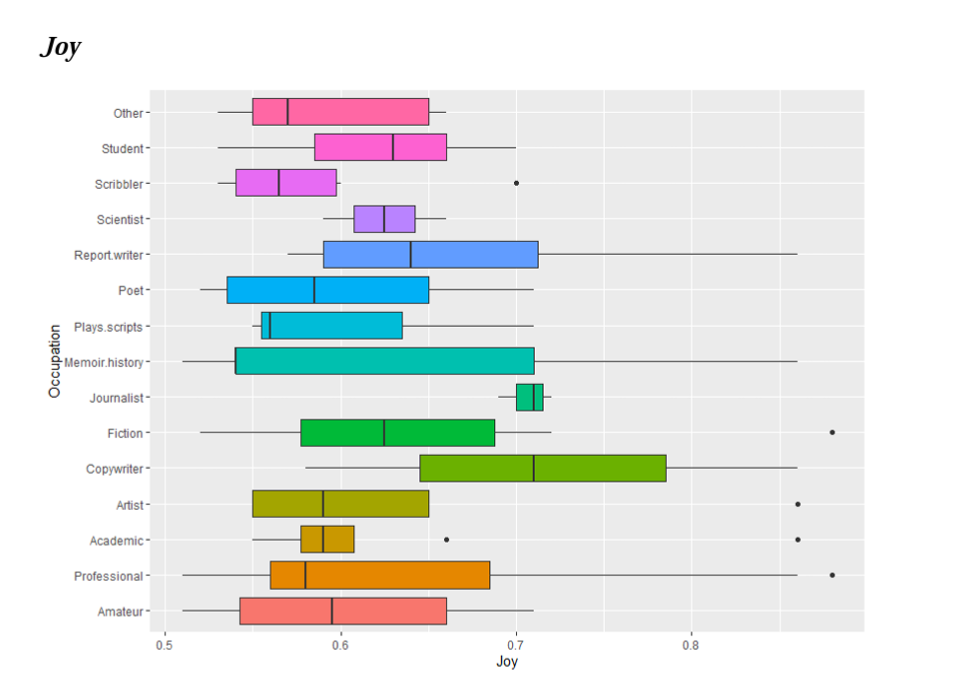Love or Hate AI as Writing Tool?
In 1959 a german computer scientist developed an automated text generator using Kafka’s novel, The Castle for source material. Harold Cohen, a painter, used mechanical devices attached to a computer to create versions of his original art, which he sold in galleries. This was 60 plus years ago.
Using computers as writing or creative aids isn’t new. It’s just bigger, better and more democratized.
In my view, there is no future that doesn’t require any and all writing apps (e.g. Word, Google Docs, all email marketing software) to, at minimum, create the first draft for you based on your prompts. This will be menu driven, point and click. It already is.
Here’s a real-life example.
Our Copy Optimizer web app is one-of-a-kind and, candidly, unique and kick-ass at scoring copy and providing diagnostics that matter to response.
We only finished building it last year. I believe it’s already a dinosaur.
Version 2.0 has to do the first draft for the user. And we aren’t wasting time, we’re already integrating Copy Optimizer rules and scoring into GPT output but we’re not stopping there. We need an AI solution that is uber-tailored to the very specific way we write copy, matching message to why people’s values and goals as defined by their Identity and Personality.
But, I don’t want to leave it to chance the user will type in all the prompts or all the prompts correctly. It needs to be simple and ‘dummy-proof’ to standardize quality of output on our set of ‘best practices’. And it must be maximally efficient.
This is all doable, today, not tomorrow or some far off future-state. And the pace of this will be exponential, both in application and competition. GPT is barely the starting point.
You’ll either adapt or die. Productivity boosts alone will demand it. Timeline turnarounds will require it.
Change comes because we see the light or feel the heat but either way, it’s coming.
How do writers feel about it? After all, change can be really hard.
Research was done with a cross-section of writers (e.g. poets, creative writers, journalists, copywriters) by the UAL Creative Computing Institute. The research including these writers working with an early version of GPT to draft copy.
The researchers then measured attitudes about the experience using a 5 point Likert scale with 3 being neutral and higher scores (4s and 5s) equating to disliking.
- The average overall liking was 2.5, slightly positive.
- The more creative the writer (e.g. fiction writers and poets) the less they like it, though the differences were slight.
- Writers were neutral about the idea of embedding this tech into their word processor though creatives were much more negative on the idea.
- The writers got less positive the more they used it.
- Sentiment analysis of open-end comments indicated more negative sentiment than positive.
- The negative emotions were dominated by fear, anger (far less common) and sadness.
- The positive emotion was Joy and an analytical sentiment
Here is a box plot of the Joy sentiment broken down by occupation.

A more useful, explanatory way to think about attitudes towards AI assisted writing is at the individual level. Are you a person high in trait Openness and “growth” mindset? You’re probably already diving in, head first, regardless of poet or beat writer day job.
Kevin



Love this, thanks. I’m a fundraising copywriter who’s been reading widely on AI developments since November and who jumped on the ChatGPT train a few days after the bot was released, so I’ve been using it for brainstorming, summarizing, organizing ideas, and research. It’s definitely a productivity boost for me — yet I don’t feel like it’s doing the hardest work; I feel like it’s good for foundational work that I can build on with my hard-won writing skills and fundraising expertise. But I agree that writers who don’t embrace these advances will be (mostly) left behind, perhaps gradually or perhaps more quickly than we might imagine. I consider this an amazing time to be alive. So I’m trying to revel in and benefit from that amazement.
Hi Brett, thanks for commenting. There is a learning curve to figuring out how to extract the best output, no question. And I expect we’ve only scratched the surface on the input/output dynamic. It certainly requires editing but so do the best authors in the world. I expect there is a version of tomorrow that requires less and less editing as we get ‘custom’ models, trained on our data and our preferences.
[…] today I happend on Love or Hate AI as a Writing Tool? from Kevin Shulman of the Agitator-DonorVoice. When it comes to creating first drafts of […]
[…] today I happend on Love or Hate AI as a Writing Tool? from Kevin Shulman of the Agitator-DonorVoice. When it comes to creating first drafts of messaging, […]